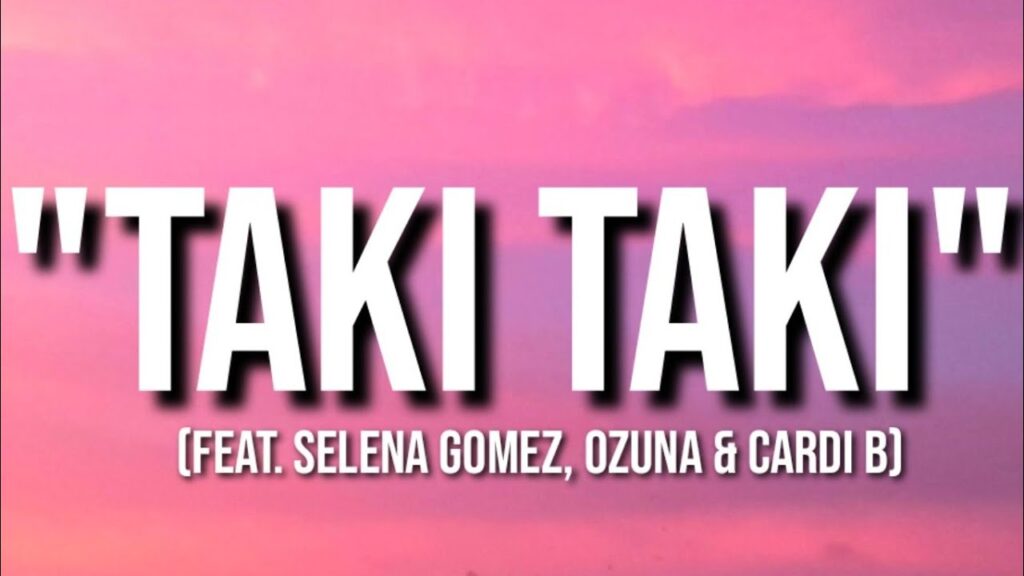
Taki Definition: Unveiling the Meaning and Significance of Taki
The term “taki” might sound unfamiliar to some, but within specific cultural contexts and online circles, it holds a particular significance. This article aims to provide a comprehensive taki definition, exploring its various meanings, origins, and uses. Whether you’ve encountered the word in a social media post, a gaming forum, or a casual conversation, understanding what taki signifies is essential for navigating these digital spaces effectively. We will delve into the different facets of the taki definition to provide a clear and concise understanding.
Origins and Etymology of Taki
The word “taki” doesn’t have a universally recognized etymology, which contributes to its varied interpretations. However, in some online communities, “taki” can refer to a derivative or variation of another term or concept. It’s essential to understand the context in which the term is used to grasp its intended meaning. Furthermore, the use of taki can be traced back to certain online communities and subcultures where it has evolved over time.
Common Interpretations of Taki
The taki definition is not always straightforward. Here are some common interpretations, often depending on the context:
- A Nickname or Shortened Form: In some instances, “taki” is used as a nickname or shortened version of a longer name or word. This is perhaps one of the simplest and most common uses.
- A Term of Endearment: Similar to a nickname, “taki” can also be used as a term of endearment between friends or loved ones.
- Slang or Informal Language: In certain online communities, “taki” might be slang for something else entirely. This is where understanding the specific community’s jargon becomes crucial.
- A Fictional Character or Item: In gaming or fictional universes, “taki” could refer to a specific character, item, or location.
Taki in Different Contexts
The meaning of “taki” can drastically change depending on where you encounter it. Let’s examine a few possible scenarios:
Online Gaming
In the realm of online gaming, “taki” could be a reference to a specific character, item, or strategy within a particular game. For example, in some games, “taki” might be a slang term for a particular weapon or ability. It is important to note that the specific meaning of taki in gaming will vary significantly from game to game. Therefore, understanding the community jargon is paramount.
Social Media
On social media platforms, “taki” might be used as a hashtag, a username, or a term within a post. The meaning can range from a personal reference to a broader cultural trend. Sometimes, taki may be used ironically or sarcastically to convey a meaning that is the opposite of its apparent one. [See also: Understanding Social Media Slang]
Anime and Manga
In anime and manga circles, “taki” could be a reference to a specific character or plot element within a particular series. Fans often use such terms as inside jokes or shorthand references. To fully understand the taki definition in this context, familiarity with the specific anime or manga is usually required.
How to Decipher the Meaning of Taki
Given the varied interpretations, how can you accurately decipher the meaning of “taki“? Here are some strategies:
- Consider the Context: The surrounding text, the platform, and the overall conversation are crucial clues.
- Look for Additional Information: Are there any hashtags, emojis, or other indicators that provide further context?
- Ask for Clarification: If you’re unsure, don’t hesitate to ask the person using the term for clarification.
- Search Online: A quick search on Google or other search engines might reveal the meaning of “taki” in the specific context you encountered it.
- Consult Online Dictionaries and Forums: Websites like Urban Dictionary or specific community forums can often provide definitions for slang terms like “taki“.
The Evolution of Online Language
The use of terms like “taki” highlights the ever-evolving nature of online language. New words, phrases, and slang terms emerge constantly, reflecting the dynamic and creative nature of online communities. Understanding these trends is essential for effective communication in the digital age. The taki definition itself might shift and change over time as new uses arise and old ones fade away. [See also: The Impact of Internet Slang on Communication]
Potential Misunderstandings and How to Avoid Them
Because the taki definition can be ambiguous, misunderstandings are possible. To avoid these:
- Be Mindful of Your Audience: Consider who you’re communicating with and whether they’re likely to understand the term.
- Use Clear and Concise Language: When possible, avoid using ambiguous terms altogether.
- Provide Context: If you must use “taki“, provide sufficient context to help your audience understand your meaning.
- Be Prepared to Explain: If someone doesn’t understand, be ready to explain what you mean.
The Future of Taki
It’s difficult to predict the future of a term like “taki“. Its popularity and meaning could continue to evolve, or it could fade into obscurity. However, one thing is certain: online language will continue to change and adapt, presenting new challenges and opportunities for communication. The importance of understanding context and being open to learning new terms will remain crucial. The taki definition of today might not be the taki definition of tomorrow.
Conclusion: The Multifaceted Nature of Taki
In conclusion, the taki definition is multifaceted and context-dependent. It can range from a simple nickname to a complex slang term with specific cultural connotations. By considering the context, seeking clarification, and staying informed about online language trends, you can effectively decipher the meaning of “taki” and avoid potential misunderstandings. The key takeaway is that the meaning of taki is not fixed and requires careful consideration of the surrounding circumstances. As online communication continues to evolve, understanding these nuances becomes increasingly important. Mastering the taki definition is, therefore, a valuable skill in today’s digital world.

